Filter by

Urban Blue Spaces : Planning and Design for Water, Health and Well-Being
This book presents an evidence-based approach to landscape planning and design for urban blue spaces that maximises the benefits to human health and well-being while minimising the risks. Based on applied research and evidence from primary and secondary data sources stemming from the EU-funded BlueHealth project, the book presents nature-based solutions to promote sustainable and resilient citi…
- Edition
- -
- ISBN/ISSN
- 0429508484, 9780429508486
- Collation
- -
- Series Title
- -
- Call Number
- 720
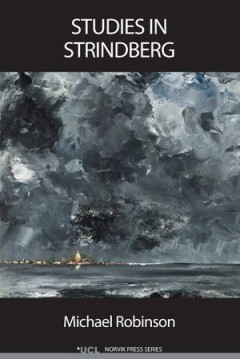
Studies in Strindberg
In this volume Strindbergs accomplishments as a dramatist are set against his achievements in other fields, as an autobiographer, painter, letter writer and theatre director.There are studies of individual plays, in which Strindbergs theatre is related both to naturalism and the theatre of the absurd, and of the role played by his life-long interest in historical drama. Other essays range from …
- Edition
- -
- ISBN/ISSN
- 78 -1-909188 -10 -5
- Collation
- -
- Series Title
- -
- Call Number
- 792 ROB s
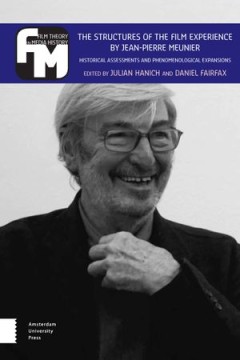
The Structures of the Film Experience by Jean-Pierre Meunier : Historical Ass…
For the first time this volume makes Jean-Pierre Meunier’s insightful thoughts on the film experience available for an English-speaking readership. Introduced and commented by specialists in film studies and philosophy, Meunier’s intricate phenomenological descriptions of the spectator’s engagement with fiction films, documentaries and home movies can reach the wide audience they have des…
- Edition
- -
- ISBN/ISSN
- 978 90 4853 784 6
- Collation
- -
- Series Title
- -
- Call Number
- 791.43 STR

Rethinking IT in Construction and Engineering: Organisational Readiness
How could the potential of IT be realised to improve business performance in architecture, construction and engineering organisations? How could organisations unleash the potential of IT to achieve a sustainable competitive advantage? How can organisations migrate from technology to IT-enabled business thinking?Based on the author's twenty years research experience, this book provides a holisti…
- Edition
- -
- ISBN/ISSN
- 9781134085866, 1134085869
- Collation
- -
- Series Title
- -
- Call Number
- 720

Regulating Coastal Zones:International Perspectives on Land Management Instru…
Regulating Coastal Zones addresses the knowledge gap concerning the legal and regulatory challenges of managing land in coastal zones across a broad range of political and socio-economic contexts.In recent years, coastal zone management has gained increasing attention from environmentalists, land use planners, and decision-makers across a broad spectrum of fields. Development pressures along co…
- Edition
- -
- ISBN/ISSN
- 9780429779763, 0429779763
- Collation
- -
- Series Title
- -
- Call Number
- 720
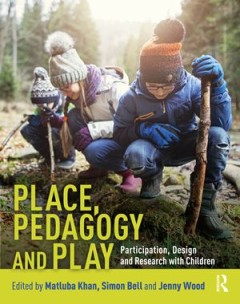
Place, Pedagogy and Play: Participation, Design and Research with Children
Place, Pedagogy and Play connects landscape architecture with education, psychology, public health and planning. Over the course of thirteen chapters it examines how design and research of places can be approached through multiple lenses – of pedagogy and play and how children, as competent social agents, are engaged in the process of designing their own spaces – and brings a global perspec…
- Edition
- -
- ISBN/ISSN
- 9780429659881, 0429659881
- Collation
- -
- Series Title
- -
- Call Number
- 720
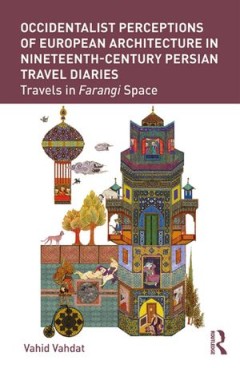
Occidentalist Perceptions of European Architecture in Nineteenth-Century Pers…
In the midst of Europe’s nineteenth-century industrial revolution, four men embarked on separate journeys to the wondrous Farangestan – a land of fascinating objects, mysterious technologies, heavenly women, and magical spaces. Determined to learn the secret of Farangestan’s advancements, the travelers kept detailed records of their observations. These diaries mapped an aspirational path …
- Edition
- 1
- ISBN/ISSN
- 1134759312, 9781134759316
- Collation
- -
- Series Title
- -
- Call Number
- 720

What Kind of Island in What Kind of Sea
The dignity of cognitively disabled people and the ethics of representing their lives are at the heart of an extraordinary yet little-known book first published in the former German Democratic Republic.
- Edition
- -
- ISBN/ISSN
- 9781643150284
- Collation
- -
- Series Title
- -
- Call Number
- 770
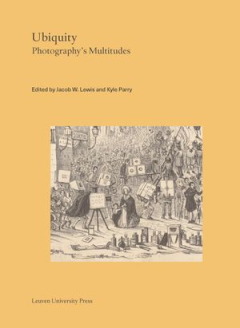
Ubiquity Photography's Multitudes
From its invention to the internet age, photography has been considered universal, pervasive, and omnipresent.
- Edition
- -
- ISBN/ISSN
- 9789461664020
- Collation
- -
- Series Title
- -
- Call Number
- 770
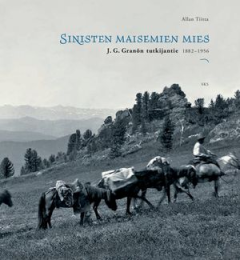
Sinisten maisemien mies
The man of blue landscapes describes the life and work of the Finnish geographer Johannes Gabriel Granö (1882–1956), whose career also reflected Finland’s development as a modern state.
- Edition
- vol. 256
- ISBN/ISSN
- 9789522228758
- Collation
- -
- Series Title
- -
- Call Number
- 770
 Computer Science, Information & General Works
Computer Science, Information & General Works  Philosophy & Psychology
Philosophy & Psychology  Religion
Religion  Social Sciences
Social Sciences  Language
Language  Pure Science
Pure Science  Applied Sciences
Applied Sciences  Art & Recreation
Art & Recreation  Literature
Literature  History & Geography
History & Geography